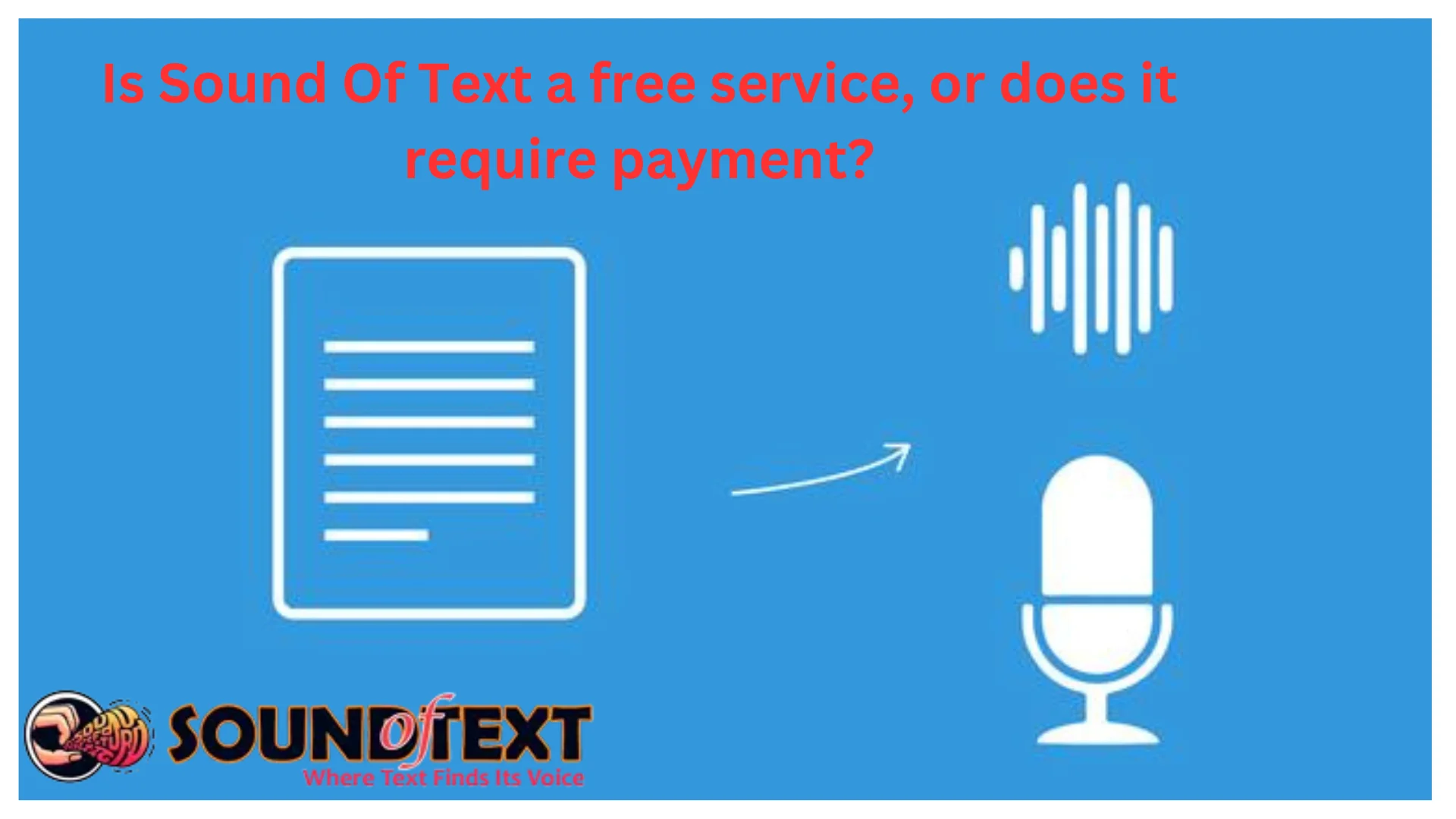SoundOfText has fast emerged as one of the most versatile text-to-speech online platforms that efficiently converts typed text into natural human-sounding speech recordings. This accessible web-based application leverages state-of-the-art speech synthesis models to recreate vocal outputs retaining original semantic context.
A common recurring user query relates to SoundOfText’s pricing modules. Does this acclaimed text-to-speech solution come free of cost or is payment warranted to access certain capabilities?
Let’s analyze what’s available without payment, options requiring subscriptions and whether the investment proves worthwhile for prospective users.
Contents
Overview of SoundOfText Platform
The SoundOfText software originated to facilitate inclusive global communication, transcending linguistic preferences. The need for transliterating text into different languages sparked its genesis.
It allows individuals and businesses to input text content into advanced natural language processing models. These analyze associated linguistics patterns before translating them into corresponding phonetic units.
Algorithms then stitch these speech units together into complete audio waveforms. The synthesized voices manage to emulate a very human-like delivery replete with appropriate pronunciations.
Such automated text-to-speech generation aids content localization efforts for global audience reach. It also assists accessibility requirements for vision impaired audiences.
Free Services Offered
SoundOfText offers users generous access to their multilingual text-to-speech capabilities without needing to upgrade to a paid version:
- ?Unlimited Text Inputs: Users can convert as much text content as needed into high-quality speech recordings via free access.
- ?Top Languages Supported: Includes widely used languages like English, Spanish, Mandarin, French. So common transcription needs get covered.
- ?️Basic Speech Parameter Controls: Allows minimal modulation over aspects like speech volume and pace.
The above features cater well to casual users like students, small-scale bloggers or listeners aiming for basic speech synthesis provisions.
However, users with advanced application needs may benefit from premium plans with additional controls.
Premium Plan Benefits
Here are some worthwhile benefits offered exclusively to paying subscribers:
- ?Wider Language Database: Caters to over 100 global languages including more obscure tongues for wider accessibility.
- ?️Voice Customization: Enables users to customize aspects like age, gender and accent type to match brand needs.
- ⚡️Speech Engine Controls: Additional levers to fine-tune pitch, tone, pronunciation emphasis for enhanced listening experience.
- ?Improved Audio Quality: Higher sound resolution and formats to embed professional voiceovers into videos or audiobooks.
- ?Volume Handling: Optimized infrastructure to swiftly handle larger text input batches without compromising on output quality.
- ?API Integration: Enables programmatic access to input text and fetch translated audio via API calls for use in third-party applications.
These benefits prove worthwhile for enterprises, large publishers or creators handling sizable volumes.
Pricing Plans
SoundOfText offers tiered pricing plans for subscribers needing more advanced text-to-speech capabilities:
?Starter: $9.99 per month billed annually
?Regular: $19.99 per month billed annually
?Business: Custom packages
The plans open up additional language availability, speech engine limits and access privileges. Compare attributes before subscribing to the apt pricing tier suited for your use case.
Is Subscription Worthwhile?
Weighing SoundOfText’s subscription costs versus market alternatives and capabilities unlocked, proves this expenditure reasonable for serious users.
Competitive solutions lack such global language depth, custom voices and optimised infrastructure. The voice quality achieved outpaces cheaper options.
For enterprises aiming to scale content production multilingually, unlocking custom voices and API access promises tremendous ROI through higher productivity and global reach.
Casual users with basic needs may find the free version itself sufficient, rather than requiring greater controls via paid accounts.
User Experiences with SoundOfText
Here are some genuine user testimonials highlighting thoughts across free and paid subscribers:
?? “As an indie developer, I leverage SoundOfText’s developer API to embed text-to-speech capabilities in my language learning app natively across device platforms.”
?? “I switched from pre-recording audio lessons to automating tutorial narrations using SoundOfText’s lifelike voices in different languages. Saves me lots of time!”
? “Localizing my company’s multilingual brochures and reports is 3x faster by automatically synthesizing different language voiceovers using this service.”
? “I use SoundOfText’s free plan to dictate my vlog scripts and social media captions. While limited, it serves basic needs before I upgrade plans.”
Above anecdotes validate SoundOfText’s reliability across diverse application contexts, whether using free or paid plans.
Comparison With Alternatives
Here’s how SoundOfText fares compared to other players:
- ? Superior language breadth: 100+ global language support for text transcription outmatches closest rivals relying on 30-40 tongues.
- ? Latest speech modelling: Continued upgrades leverage cutting-edge deep neural networks for more accurate context-based speech modulation attuned to slang, dialects and sentiments.
- ?️ Realistic voice cloning: Train the software to accurately emulate brand persona voices using audio data sampling for distinct voice identities.
- ? Enterprise-focused offerings: Custom voices, developer API access, dedicated account management and data security provisions to support large organizations better.
With pioneering capabilities aligned to inclusive innovation standards, SoundOfText strives to push boundaries of speech synthesis for global communication enablement.
Addressing Limitations
That said, SoundOfText continually enhances its lip to handle use case corner scenarios:
? Expanding language corpora and testing feedback loops to boost speech accuracy for niche terms and less documented dialects.
⌛️ Optimizing cloud infrastructure for low latency responses crucial in interactive conversational systems.
? Enabling seamless integration of generated speech into third-party video, game and application ecosystems.
As research in linguistics and AI responsibly coevolve, tools like SoundOfText promise to transform cross-border exchange of ideas.
The Road Ahead
As SoundofText envisions further innovation in speech synthesis, upcoming initiatives remain focused on:
- ? Leveraging robust AI to achieve more adaptive humanized speech modulation attuned to textual prompts
- ? Enhancing audio output quality for synthesized speech and expanding file export formats
- ?️ Advancing multi-speaker conversational modeling for realistic TTS interactions
We foresee even savvier solutions that expand linguistic breadth through responsible AI practices for promoting information accessibility. Democratizing knowledge exchange promises to enrich societies by connecting global citizens beyond physical and lingual barriers.

